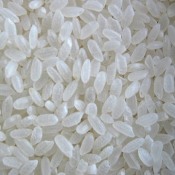 Food inflation declined to a three-month low of 10.15 per cent for the week ended November 13 as vegetable prices softened on fresh crop arrival, raising hopes that the Reserve Bank will not hike key rates for now.
Food inflation declined to a three-month low of 10.15 per cent for the week ended November 13 as vegetable prices softened on fresh crop arrival, raising hopes that the Reserve Bank will not hike key rates for now. This is the sixth week in a row that food inflation has fallen on the back of improved crop arrivals in markets across the country, as also the impact of RBI's monetary tightening which has arrested pressure on demand.
It is also the first time after a long gap that food inflation has declined for such a long period. Food inflation stood at 10.30 per cent in the previous week. On an annual basis, pulses prices fell by 7.58 per cent, and vegetables became cheaper by 3.76 per cent on account of a sharp dip in potato prices (48.70 per cent).
"Decline in prices for food articles is attributable to the increased supply of agricultural commodities in the market," Deloitte India Principal Economist Shanto Ghosh said.
In fact, the large base last year was another factor that made food inflation for the week ended November 13 seem lower.
"Food inflation is now heading down at a gradual pace. Base effect kick in is one reason for this decline apart from improved harvest," Crisil Chief Economist D K Joshi said. Economists said food inflation will come down to single digit by mid December.
Single-digit food inflation was last witnessed in the week ended July 24
Food items have a weight of over 14 per cent in the overall wholesale price index-based inflation. The overall inflation was 8.58 per cent in October, much above the RBI comfort level of 5-6 per cent.
The Reserve Bank, which raised key policy rates six times in the year to tame inflation, had said it would pause for sometime before hiking rates again.
"The effect of the successive interest rate increases is now beginning to show up in the form of reduced demand," Ghosh said. Although the hiking of policy rates does not impact food inflation directly, the increase usually helps in curbing consumer demand by reducing the money supply.
However, food inflation on protein based food items continued to remain high. Prices of food items like egg, meat and fish rose by about 23 per cent.
Besides, fruits and milk became costlier by 21.85 per cent and 16.90 per cent, respectively, on year-on-year basis. In vegetables, onion was expensive by 17.03 per cent on annual basis.









 © 2025
© 2025